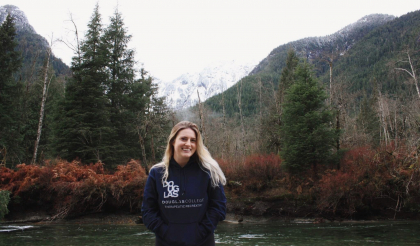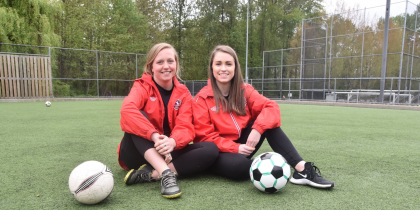If you see people as people first and believe everyone has a right to enjoy their lives through leisure and play, consider a career in therapeutic recreation.
Program highlights
Unique program
The Therapeutic Recreation program at Douglas College is the only program of its kind in the province. In it, you’ll learn how to use leisure activities – such as arts and crafts, dance, music, sports, games, aquatics and group outings - to improve the health, well-being and quality of life for seniors and people living with disabilities or illnesses.
Hands-on experience
You’ll also get opportunities to put what you’ve learned into practice with real clients through community projects, practicums and internships.
Introducing the Online Diploma Pathway
Beginning in the Fall of 2021 Semester (September) the Therapeutic Recreation program will be offering the option to complete the Diploma through online course delivery. Applications are currently open for the Online Diploma pathway.
National Council for Therapeutic Recreation Certification
Douglas College Therapeutic Recreation graduates have maintained a 100% pass rate on the National Council for Therapeutic Recreation Certification exam from 2016-2018, surpassing the national and international average by close to 20%.
Program options
Douglas College offers two credentials:
- Diploma in Therapeutic Recreation (four semesters over two years of full-time study for in-class; 6 semesters of a lighter course load over two years of full-time studies for the online pathway)
- Bachelor of Therapeutic Recreation degree (eight semesters of full-time study over four years).
If you complete the degree, you’ll be eligible to become a Certified Therapeutic Recreation Specialist (CTRS).
Career advancement
Graduates are prepared to start careers working with seniors in the growing field of gerontology, as well as with clients of all ages and abilities in long-term care homes, health care facilities, mental health and addiction settings, adapted sport organizations, rehabilitation centres, correctional facilities, social service settings, community-based agencies and more.
Application requirements
- Application Form (to be emailed directly to the program)
- Work Reference Form (only required for 3rd-year Access applicants who have been out of school for more than 5 years)
- Resume (to be emailed directly to the program)
- Letter of Intent (to be emailed directly to the program)
- 2 letters of reference (to be sent directly from the referee to the program)
Please do not send in any requirements until after you have opened your application online.
Want more information?
For information about admission requirements, courses, intake dates and more, visit the Program and Course Catalogue.
Please email tr@douglascollege.ca to contact the program directly.

